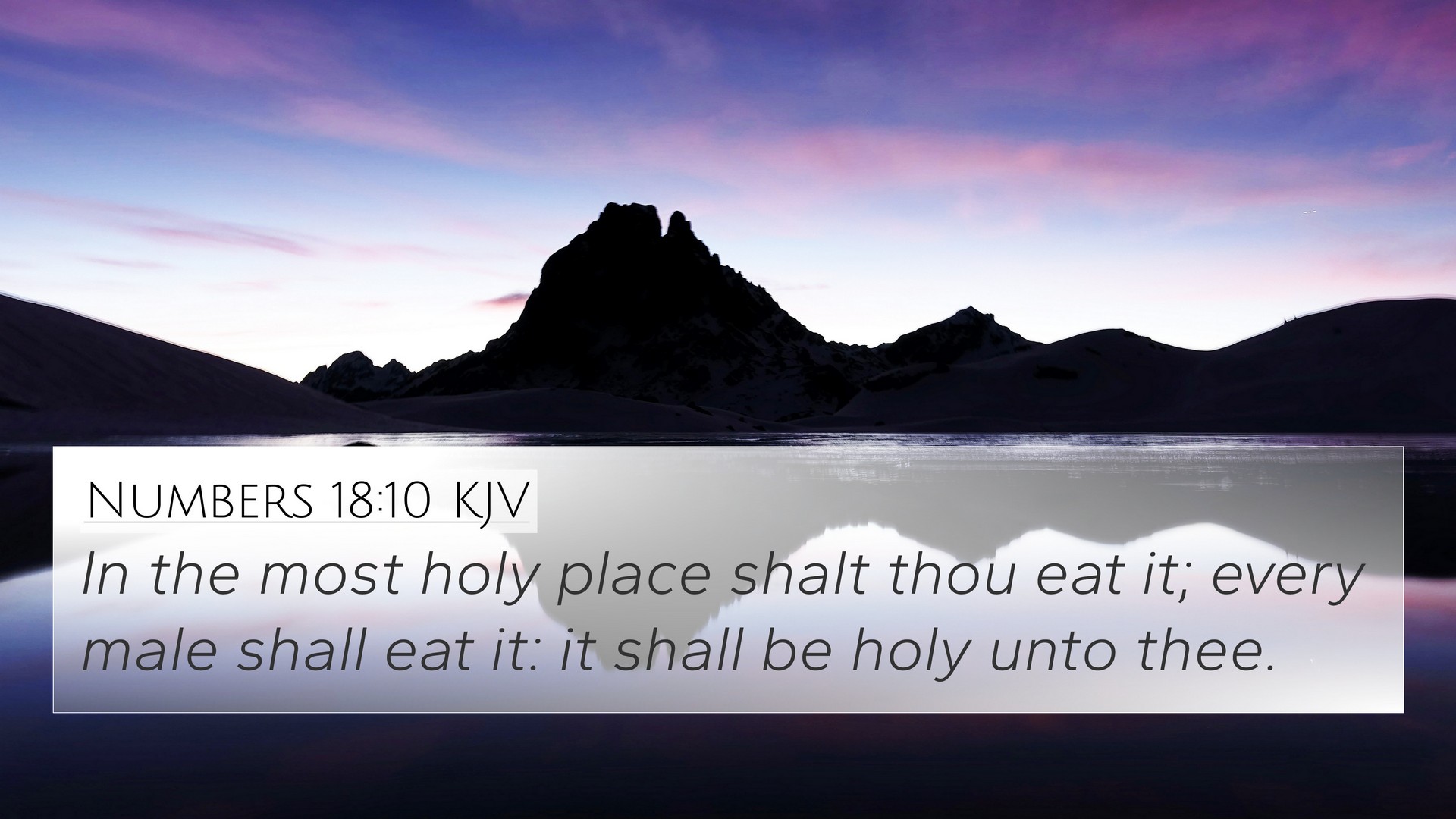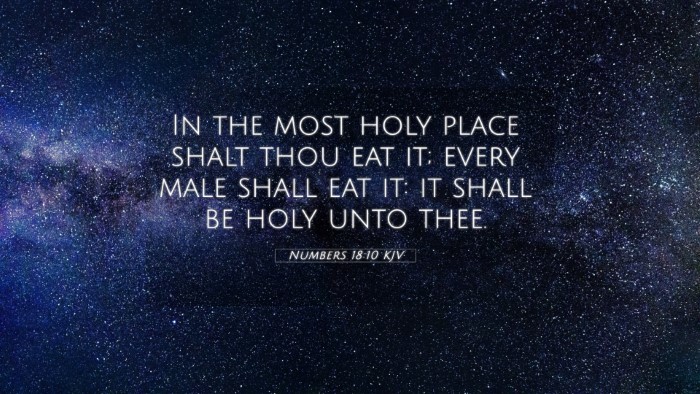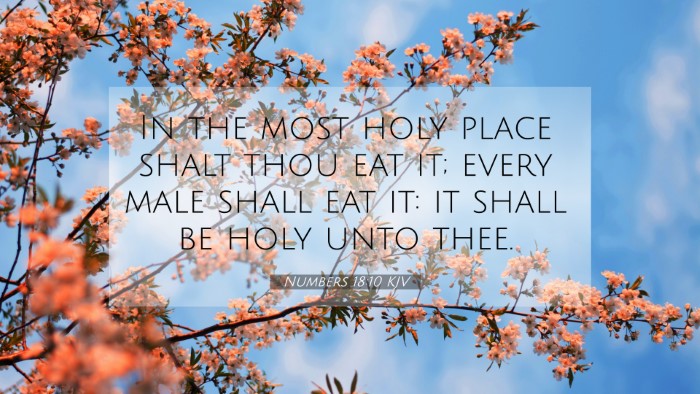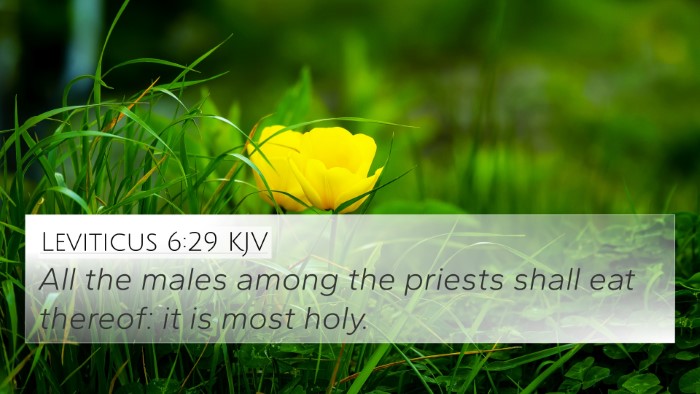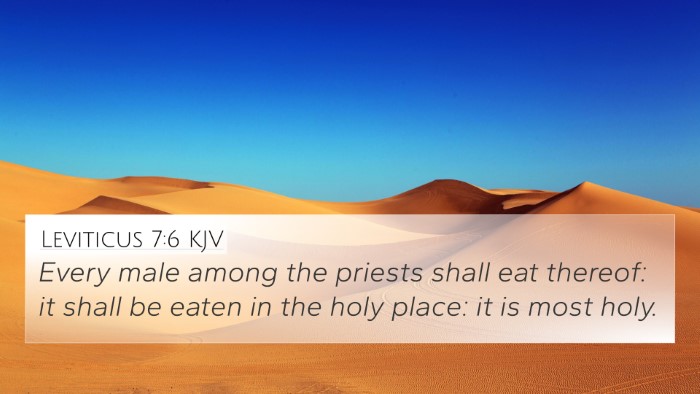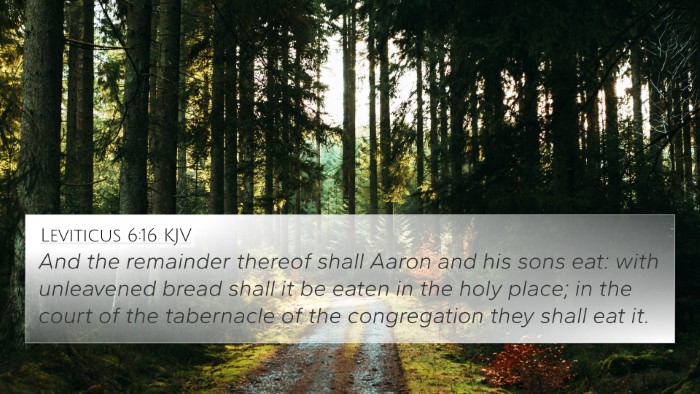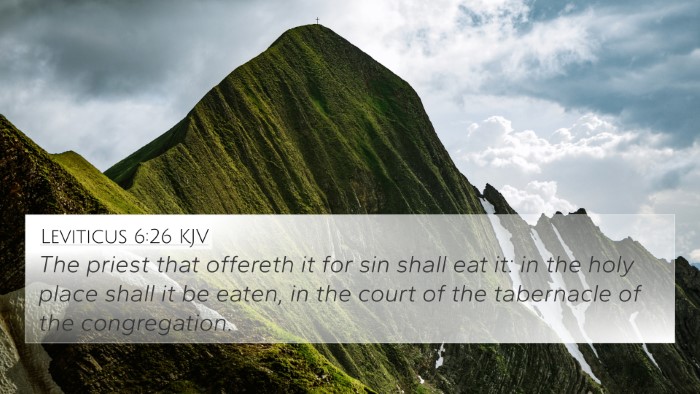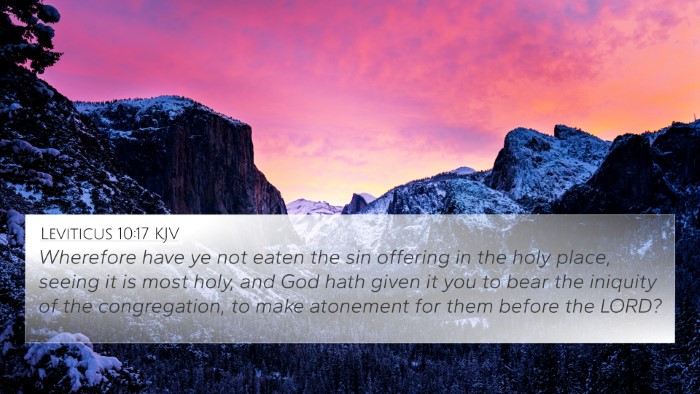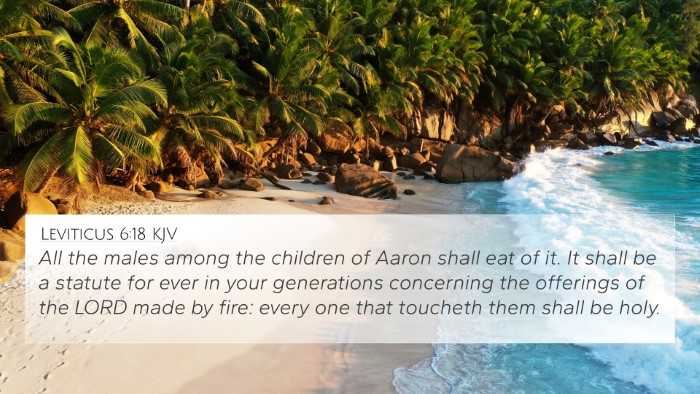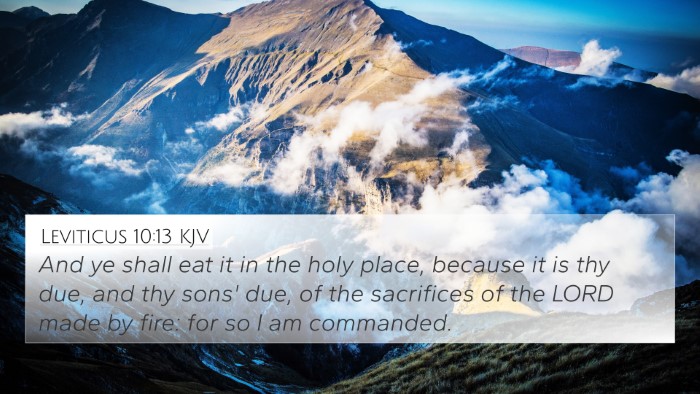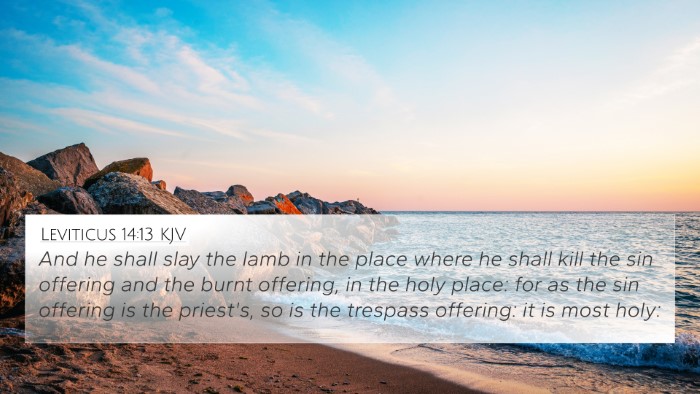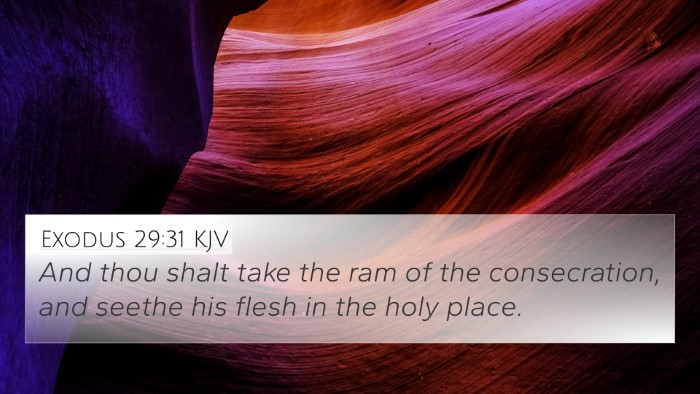Understanding Numbers 18:10
Verse: "And you shall eat it in a holy place; because it is your due, and your sons' due, of the sacrifices of the Lord made by fire: for so I am commanded."
Summary of Interpretation
Numbers 18:10 provides instruction from God regarding the priestly food offerings. This verse emphasizes the importance of the sacrificial system and the provision made for the priests and their families. The directives illustrate the sacred nature of these offerings and highlight the significance of holiness in the consumption of such offerings.
Key Themes
- Sacredness of Offerings: The food offered during sacrifices is considered holy and thus must be consumed in a designated sacred space.
- Provision for the Priests: The verse underscores how God provides for the Levites (priests) through the offerings made by the people.
- Obedience to Commandments: The instruction is given as a divine command, highlighting the obedience required from the priests in their role.
- Covenant Relationship: The relationship between God and the priests is established through these commands, defining their role and the people's responsibility in worship.
Cross-References
This verse can be linked with the following Bible verses to enhance understanding:
- Leviticus 6:16: Discusses the provision of food for the priests from the offerings.
- Deuteronomy 18:1-2: Outlines the rights of the priests and Levites regarding the sacrifices.
- Hebrews 7:12: Refers to the priesthood and its changes, providing insight into the nature of priestly duties.
- Malachi 1:6: Examines the reverence due to God's offerings and the importance of proper worship.
- 1 Corinthians 9:13-14: Discusses the principle of living from the offerings, similar to what is commanded in Numbers.
- Exodus 29:33: Details how the priests partake of the sacrifices, pointing to the communal aspect of worship.
- Matthew 5:23-24: Illustrates the idea of reconciliation before offering, emphasizing the right attitude in worship.
Theological Insights
The interpretation of Numbers 18:10 can be enriched by considering several theological insights:
- The Nature of Holiness: The holiness of the offerings and the necessity of consuming them in a sacred space highlight God's transcendence and the need for reverence in worship.
- Role of the Priesthood: The priesthood serves as mediators between God and the people, emphasizing their vital role in the covenant community.
- God’s Provision: This verse illustrates God's provision not just spiritually but also physically, ensuring the needs of His servants are met.
- Sacrificial System's Intent: Understanding the purpose behind sacrifices helps in comprehending the overarching theme of atonement throughout scripture.
Comparative Bible Verse Analysis
By analyzing this passage across different translations and commentaries, we can see variations that may deepen our understanding:
- Matthew Henry: Focuses on the righteousness of God in providing for the priests through offerings, emphasizing their responsibilities.
- Albert Barnes: Reflects on the necessity for priests to maintain a distinct role of holiness that underscores the sacredness of their duties.
- Adam Clarke: Highlights the communal aspect of the offerings, interpreting the relationship between the people and the priests in their worship practices.
Application in Devotional Life
Numbers 18:10 encourages modern believers to reflect on their own approach to worship and how they engage with God’s instructions:
- Participation in Worship: Believers should consider how they engage in acts of worship and the reverence they bring to such acts.
- Supporting Church Leadership: This verse can remind congregants of the importance of supporting their church leaders as they fulfill God’s calling.
- Understanding God’s Provisions: Just as God provided for the Levites, believers are encouraged to trust in God’s provision in their lives.
Conclusion
Numbers 18:10 serves as a powerful reminder of the sacred relationship between God, worship, and provision. By understanding its significance within the context of the broader biblical narrative, believers can appreciate the importance of holiness, obedience, and community in their spiritual lives. Engaging with cross-references and thematic connections invites deeper exploration into the rich tapestry of scripture and God’s ongoing dialogue with humanity.
